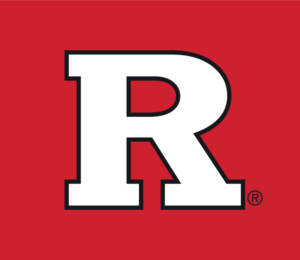Jersey City Slip-and-Fall Injury Lawyers
We are team of highly skilled personal injury, workers compensation, immigration, criminal defense, family law, and business law attorneys. If you have a legal issue in New Jersey we can help you. Call us today for a free initial phone consultation.
Jersey City Slip-and-Fall Injury Lawyers
Falls are more dangerous than most people realize.
Your lifetime odds of dying from a fall is about one in 98. This statistic makes falls the third-most likely cause of accidental death in the U.S., slightly behind motor vehicle accidents and drug overdose.
These kinds of accidents include falls from a height, such as from a ladder, and falls at the same elevation, such as slip-and-fall accidents. After you get injured in a slip-and-fall accident, Jersey City slip-and-fall injury lawyers from Garces, Grabler & LeBrocq will evaluate your claim and identify all your possible sources of injury compensation.
What Is a Slip-and-Fall Accident?
New Jersey law requires property owners, tenants, and managers to keep their premises reasonably free from hazardous conditions. Premises liability law determines when these parties are liable for accidents on their property. Premises liability can cover many types of hazards, including:
- Negligent security
- Poor parking lot lighting
- Exposed wires
Slip-and-fall accident claims are a subset of premises liability claims. The legal duty of property owners, tenants, and managers requires them to identify footing hazards, warn guests, and fix them within a reasonable time. A slip-and-fall accident happens when those responsible for property in New Jersey fail to complete this legal duty.
Causes of Slip-and-Fall Accidents
Falling accidents happen in two similar but distinct ways. Slip-and-fall accidents occur when your feet lose traction, whereas trip-and-fall accidents happen when you have unstable footing. Both often result from preventable causes. Some causes of slipping and tripping include the following:
Slip-and-Fall Accidents
Your feet can lose traction and slide when the friction force between the floor and the soles of your shoes drops, leading to a slip-and-fall accident. Some causes of slipping accidents include:
- Liquid spills
- Snow and frost
- Ice
- Floor polish
- Sand and gravel
- Condensation
- Moist food
The slip-and-fall accidents you hear about most often are those where someone slips on ice or snow at the entrance to a building. Some other common slip-and-fall accident scenarios are spills in restaurants and bars and fallen fruit in grocery stores.
Trip-and-Fall Accidents
Trip-and-fall accidents can occur when you lose your footing, which throws off your balance. This usually happens in two situations.
First, something catches your foot as you are walking and prevents it from moving forward. Your body continues forward, and you fall because your foot is not there to catch you. Examples of flooring conditions that can cause this type of trip-and-fall accident include the following:
- Objects on the floor
- Raised thresholds
- Sticky floors
- Raised carpet
- Cracked pavement
- Unmarked steps up
- Broken steps
Second, you could trip when your foot encounters an unexpected drop in elevation. You fall when your center of gravity shifts forward, throwing you off balance. Several conditions can cause these types of tripping accidents, such as:
- Potholes
- Unmarked steps down
- Uneven sidewalk joints
Common trip-and-fall accidents are falls down stairs or trips over wrinkled rugs. Trips might not seem dangerous. However, since they can involve uneven surfaces, you might tumble forward, hitting the ground repeatedly as you roll.
Contributing Factors
Trips and slips tend to happen due to several contributing factors that make it more difficult to spot floor hazards or catch yourself when you start to fall. Such factors might include poor lighting and broken handrails.
No Fee Unless
GGL Wins
Common Slip-and-Fall Accident Injuries In Jersey City
Slips and trips cause different injuries. When you slip, you fall backward and cannot stop your fall with your arms. As a result, you will hit your buttocks, back, or head. Depending on the cause, you might turn as you fall, hitting your hip, ribs, and shoulder.
Tripping accidents injure different body parts. When you trip, you fall forward. You will probably extend your arms to catch yourself. When you hit the ground, you may strike your hands, elbows, knees, chest, or face.
Some common injuries you could suffer in a slipping or tripping accident include the following:
BRAIN INJURIES
When you fall, you could hit your head and suffer physical, mental, and emotional symptoms. But you can incur a brain injury even if you don’t suffer head trauma. The whipping of your head and neck can shake your brain hard enough to damage brain cells.
A concussion happens when the brain presses on the cerebrospinal fluid and meninges as it moves in your skull. The damaged brain tissue swells and causes a headache, confusion, and other symptoms. More serious brain injuries, like a cerebral contusion, diffuse axonal injury, or subdural hematoma, can cause coma or death.
SPINAL CORD INJURIES
The spinal cord carries signals between the brain and the body below the neck. When it gets severed, you will have permanent paralysis and loss of sensation. If it gets compressed, you may experience partial paralysis, weakness, and numbness.
A spinal cord injury can happen in a slip or trip-and-fall accident if you fracture a vertebra in your spine. The fractured vertebra can dislocate into the spinal canal and damage the spinal cord.
BACK AND NECK INJURIES
There are other ways you can injure your neck or back after hitting the ground. For instance, you could strain the muscles and tendons in your back or sprain the ligaments holding your spine together. These injuries will typically heal.
Different back and neck injuries will not heal. You could herniate a disc when your spine compresses during your fall, destabilizing your spine and producing back pain. This can also compress a nerve root branching from your spinal cord. The compression can cause pain that radiates into your limbs, leading to weakness and numbness as well.
FRACTURED BONES
A fall can generate enough force to fracture bones, such as the:
- Hip
- Rib
- Vertebra
- Skull
- Arm
- Hand
- Patella
- Teeth
- Facial bones
Bones typically heal in six to eight weeks. During that time, the doctor may need to immobilize the fracture so it can heal. As your bone heals, you may suffer complications like blood clots that lead to deep vein thrombosis or pulmonary embolism.
SPRAINED LIGAMENTS
Ligaments hold bones together at joints. Sprains happen when ligaments hyperextend. A fall could hyperextend ligaments in your shoulder, elbow, wrist, or knee, leading to symptoms such as:
- Joint pain and instability
- Inflammation
- Limited range of movement
A mild sprain may heal on its own in four to six weeks. A severe strain with a full-thickness tear may require surgery and several months of rehabilitation.
Liability in Slip-and-Fall Accidents
Slip-and-fall injury claims fall under negligence law. Negligence requires proof of four elements:
- Duty of care
- Breach of duty
- Damages
- Causation
Property owners, tenants, and managers have a legal duty to exercise reasonable care to keep guests safe. They breach this duty when they fail to warn guests of any hazardous conditions or fix them in a reasonable amount of time.
For example, suppose that a customer informs a cashier of a spill in a grocery store. To potentially avoid liability for any injuries that result from a slip in the spill, the store will likely send someone to mark the spill or even close the aisle until a worker can clean it. Within a reasonable time after marking it, the store will mop and dry it.
However, the store might be liable for any slip-and-fall injuries that happen if the spill remains unmarked or uncleaned for an unreasonable period. The measure of whether the store acted quickly enough is based on an objective standard. The claims adjuster or jury must consider what an ordinary person in the same situation would do.
Your damages include both economic and non-economic losses. Your economic losses encompass the financial costs of your injuries. Some economic losses you might suffer include:
- Past and future medical costs
- Lost income due to missed work
- Diminished earning capacity from long-term disabilities
Your non-economic losses include the reduction in your quality of life due to your injuries. Some potential non-economic losses include:
- Emotional distress and suffering
- Physical pain
- Disability
- Scarring and disfigurement
- Dismemberment
You prove causation by showing that the breach was a substantial factor in the chain of events that led to your losses. You must also show that an injury was foreseeable based on the other party’s actions.
People and Entities Liable for Slip-and-Fall Injuries
Slip-and-fall injuries can happen anywhere. The location of the accident will determine the business or person liable for the injuries the victim sustained as a result. These accidents often occur in places like:
- Apartment buildings
- Homes
- Offices
- Restaurants
- Stores and shopping centers
- Hotels
- Amusement parks and entertainment centers
- Fitness clubs
- Hospitals
- Parking lots and garages
Once a lawyer knows where the accident happened, they can analyze who might be liable for any losses. Generally, you start with the property owner.
In many situations, the analysis ends there. For example, when you slip and fall on the walkway of a private home, liability will likely fall on the owner since they were responsible for shoveling the snow.
The owner is responsible for injuries that happen on their property unless someone else steps into their shoes. Other parties that might be liable for slip-and-fall injuries are tenants and property managers.
On leased property, the owner and tenant are each liable for injuries that happen in their areas of responsibility. Thus, tenants are liable for injuries that happen within the leased property, while landlords are liable for injuries in common areas.
For example, suppose that you slip and fall while visiting your doctor. If you fall in the doctor’s waiting room, you may have a claim against the doctor’s office. If your accident happens in the stairwell, you may have a claim against the doctor’s landlord.
This situation may change slightly when the property owner hires a management company to run their premises. In this situation, the management company may be responsible for finding and fixing flooring hazards. Consequently, the company will bear the liability for any slipping or tripping accidents that happen.
Effect of Your Actions
New Jersey applies the doctrine of comparative fault after an accident. Each person or entity that contributed to the accident’s cause will get assigned a share of the fault. If you bear even just some of the fault, the insurance adjuster or judge will reduce your compensation proportionally.
Suppose that you were running down the aisle of a grocery store when you tripped and fell on a crate left by a stockroom worker. Your injuries wouldn’t have happened without the crate. As such, the store owner will bear a share of the responsibility if the crate was on the floor for an unreasonable period of time.
At the same time, the grocery store might be able to argue that you share in the blame. By running, you might have missed the chance to avoid the accident, and your speed before you fell may have worsened your injuries. If you get assigned 20% of the blame for your injuries, you can only recover 80% of the damages you suffered.
One additional element will play into the compensation you can recover. Premises liability law is designed to protect invitees onto the property. Invitees include anyone lawfully on the premises, such as:
- Guests
- Visitors
- Customers
- Clients
- Workers
- Meter readers
- Delivery workers
Trespassers aren’t invitees. As a result, they typically have no claim after a slip-and-fall accident. This doctrine applies to areas of the property as well. If a customer lawfully on the premises entered an area for “Employees Only” or ignored a “Do Not Enter” sign, they may be deemed a trespasser without any right to pursue compensation.
Why Hire GGL?
Garces, Grabler & LeBrocq is a personal injury law firm that has been serving injured people in Jersey City and throughout the state since 1991. Our Jersey City slip-and-fall injury lawyers have decades of experience analyzing accidents and identifying all the parties who might be liable for your injuries.
We understand the frustration and confusion the legal system may cause accident victims. We treat you like family as we guide you with knowledgeable, aggressive, and professional legal representation.
Contact us online or call 1-800-923-3456 to schedule a free consultation to discuss your accident and learn about your options for pursuing financial compensation for your injuries.
No Fee Unless
GGL Wins
We've got you covered.
We are available 24/7/365

OFFICIAL PARTNER OF RUTGERS ATHLETICS
Jersey City Slip-and-Fall Injury Lawyers
Address: 3000 John F. Kennedy Blvd. Suite 311 Jersey City, NJ 07306
Phone: (201) 695-1000
Open 24/7 365
Office:
8:30-6:00 Monday
8:30-6:00 Tuesday
8:30-6:00 Wednesday
8:30-6:00 Thursday
8:30-6:00 Friday
Recent GGL Wins
Medical Malpractice
A 30-year-old pregnant woman went into labor. The doctor failed to take proper steps in the baby’s delivery, making the mother wait in the hallway for ten hours while the baby’s heart rate began to drop. The baby was delivered via C-Section; he was blue from lack of oxygen resulting in Cerebral Palsy.
$14 Million
Verdict
Construction Accident
Mediation award resulting from an industrial explosion causing disfiguring burns and severe orthopedic injuries.
$7,8 Million
Verdict
Auto Accident
31-year-old man who was cut off by another car causing his car to flip over. He sustained head injuries, facial injuries, and half of his pinky finger was amputated.
$3 Million
Verdict
No Fee Unless
GGL Wins
Request A Free Consultation
We've got
You covered
We are available 24/7/365

